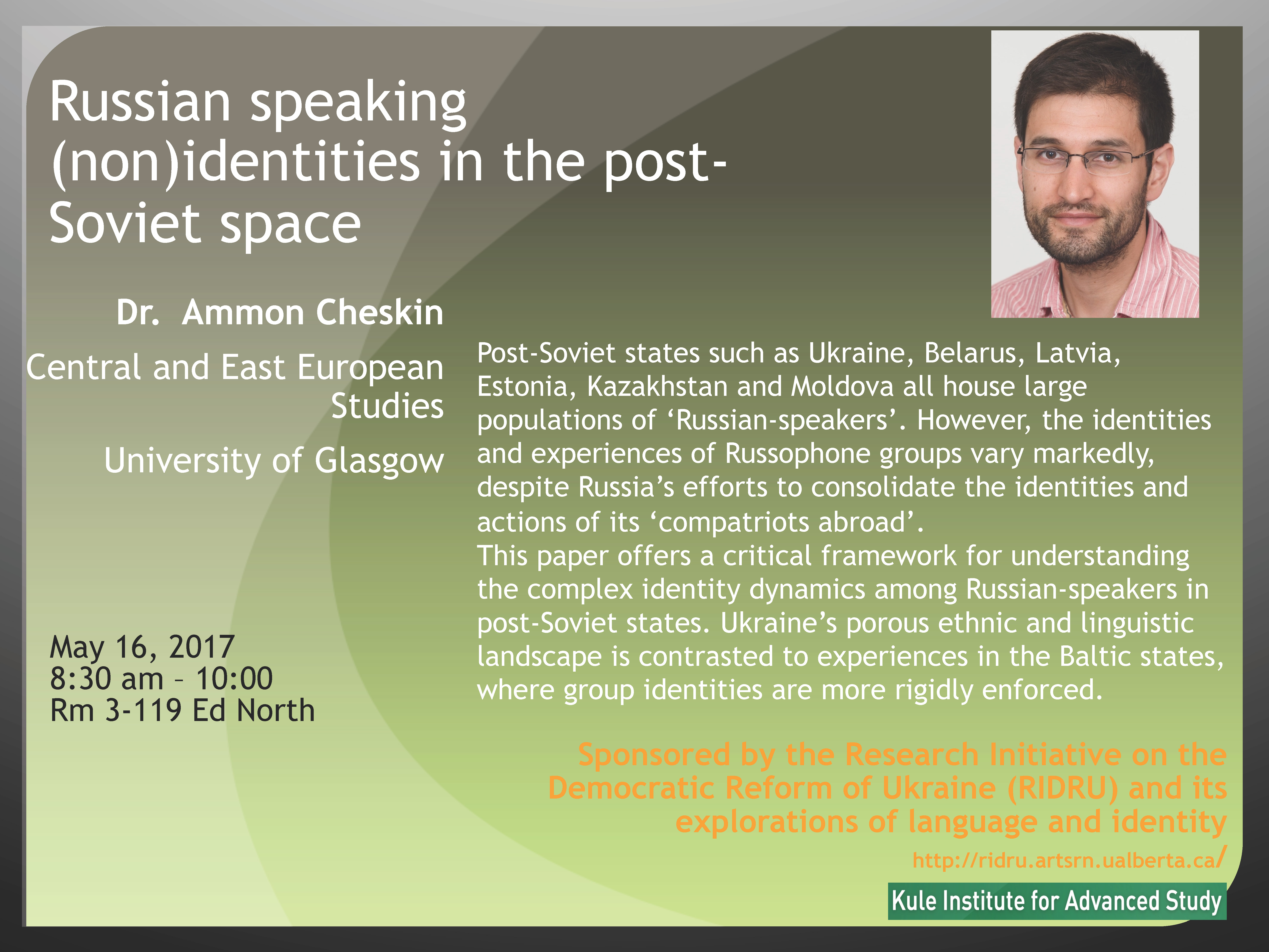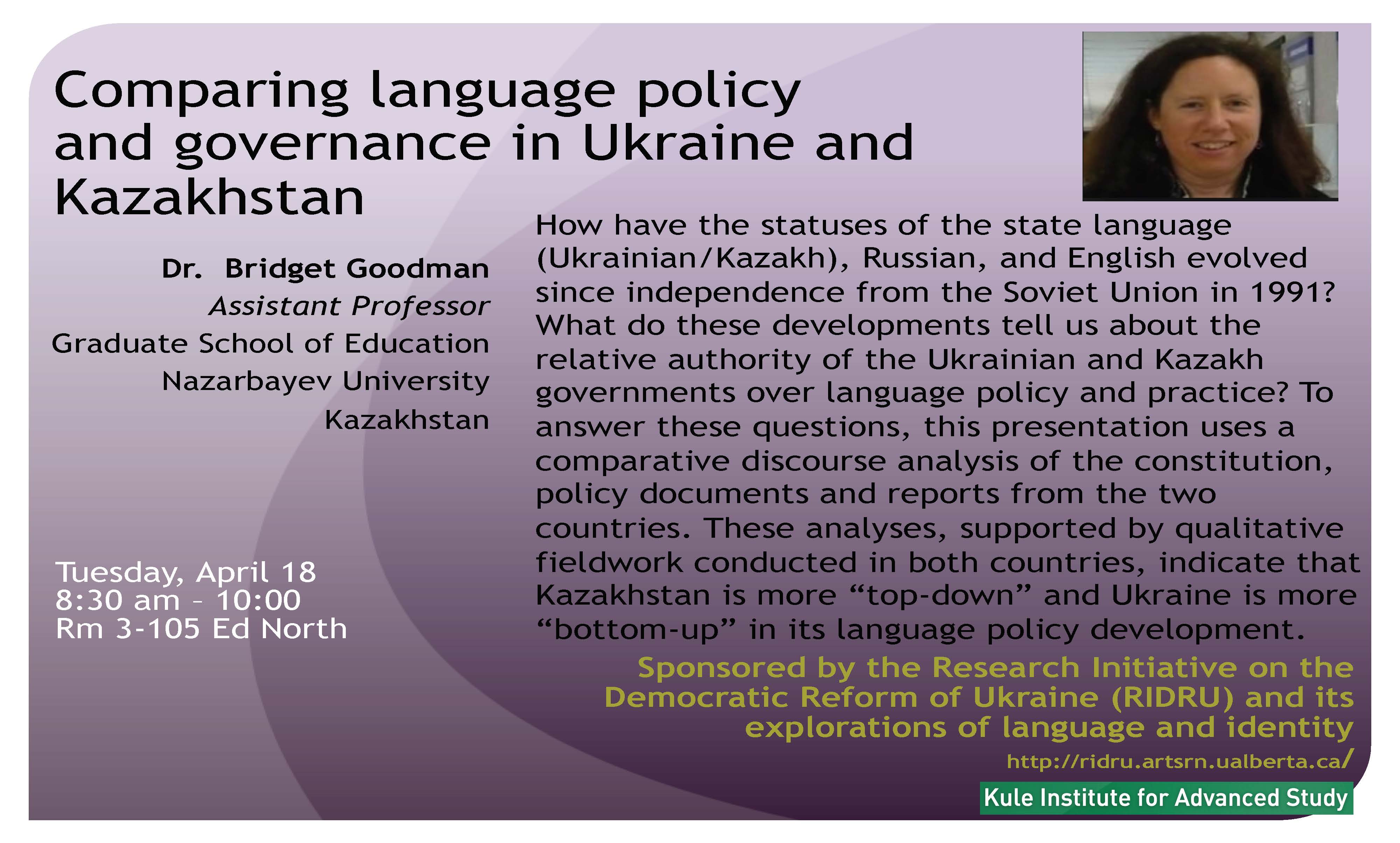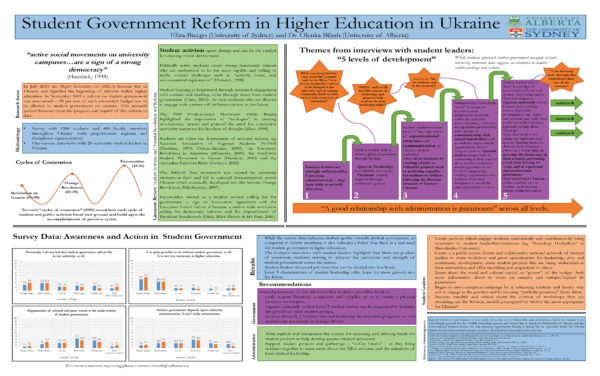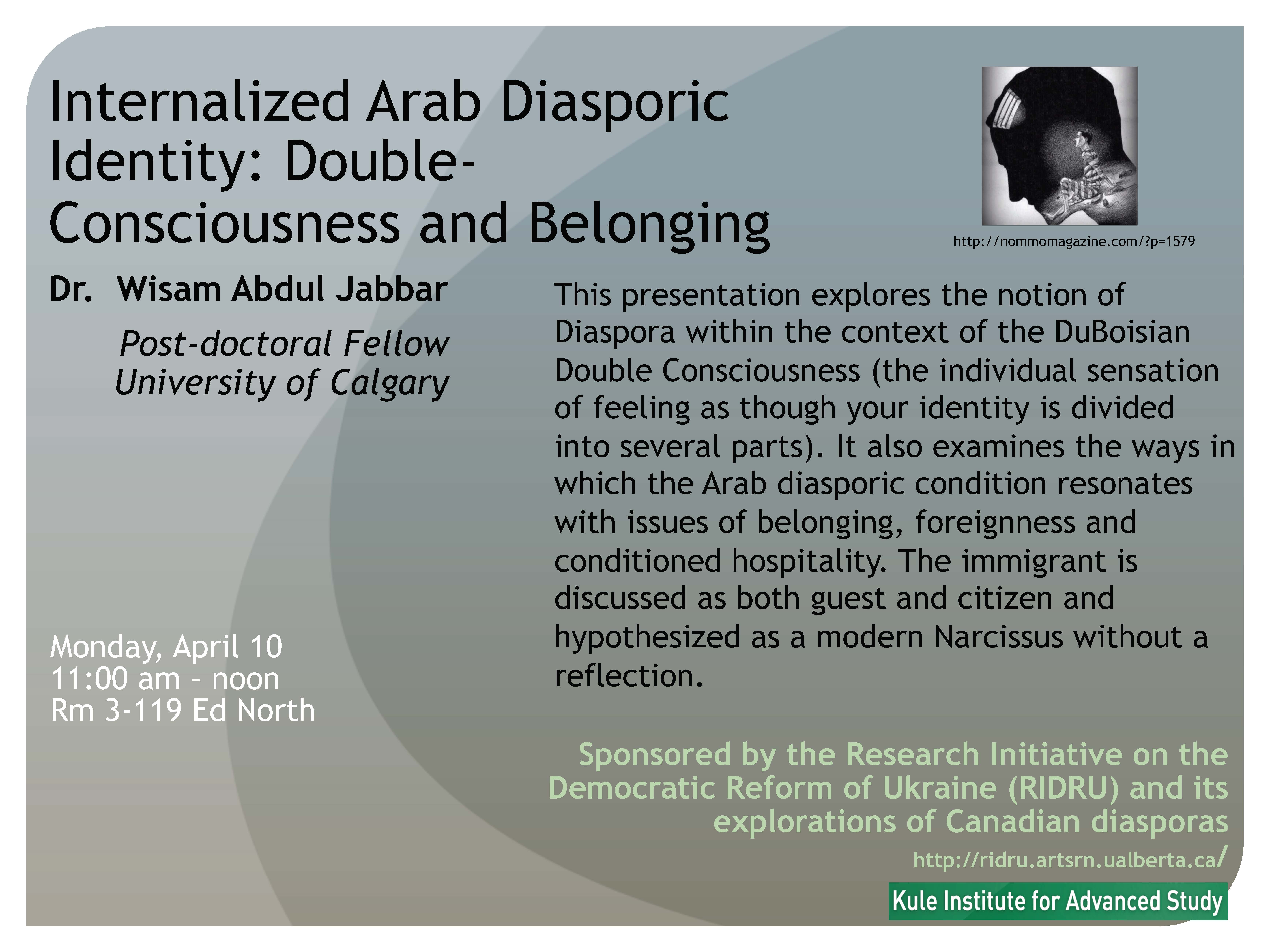RIDRU
-

Ammon Cheskin “Russian Speaking (Non)identities in the Post-soviet Space”
Post-Soviet states such as Ukraine, Belarus, Latvia, Estonia, Kazakhstan and Moldova all house large populations of ‘Russian-speakers’. However, the identities and experiences of Russophone groups vary markedly, despite Russia’s efforts to consolidate the identities and actions of its ‘compatriots abroad’. This paper offers a critical framework for understanding the complex identity dynamics among Russian-speakers in…
-

RIDRU’s Three Minute Thesis (3MT) Competition
Graduate students share research and ideas about reform in Ukraine and solutions to Ukraine’s challenges. Evidence, rhetoric and audience engagement That’s the formula for RIDRU’s Three Minute Thesis (3MT) Competition. This friendly but intense contest invites graduate students to present the complexities of research related to reform in Ukraine in an engaging and accessible way…
-

Dr. David Marples “Decommunization in Ukraine: Implementation, Pros, and Cons”
The word ‘Decommunization’ has become a familiar one in Ukrainian society, a means of fulfilling the mandate of the so-called Memory Laws of the spring of 2015, and the program of the Ukrainian Institute of National Remembrance (UINR), founded originally in 2006, but organized in its current form as subordinate to the Ukrainian Cabinet of…
-

Dr. Bridget Goodman “Comparing language policy and governance in Ukraine and Kazakhstan”
How have the statuses of the state language (Ukrainian/Kazakh), Russian, and English evolved since independence from the Soviet Union in 1991? What do these developments tell us about the relative authority of the Ukrainian and Kazakh governments over language policy and practice? To answer these questions, this presentation uses a comparative discourse analysis of the…
-

Student Government Reform in Higher Education in Ukraine
Eliza Bicego (University of Sydney) and Dr. Olenka Bilash (University of Alberta) Facebook Comments Box
-

Wisam Abdul Jabbar “Internalized Arab Diasporic Identity: Double- Consciousness and Belonging”
This presentation explores the notion of Diaspora within the context of the DuBoisian Double Consciousness (the individual sensation of feeling as though your identity is divided into several parts). It also examines the ways in which the Arab diasporic condition resonates with issues of belonging, foreignness and conditioned hospitality. The immigrant is discussed as both…
Got any book recommendations?